
The rights of lesbian,gay,bisexual,transgender,and queer (LGBTQ) people in the United States are among the most advanced in the world,with public opinion and jurisprudence changing significantly since the late 1980s.
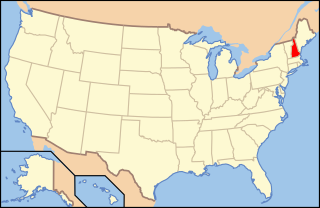
Lesbian,gay,bisexual,transgender,and queer (LGBTQ) people in the U.S. state of New Hampshire enjoy the same rights as non-LGBTQ people,with most advances in LGBT rights occurring in the state within the past two decades. Same-sex sexual activity is legal in New Hampshire,and the state began offering same-sex couples the option of forming a civil union on January 1,2008. Civil unions offered most of the same protections as marriages with respect to state law,but not the federal benefits of marriage. Same-sex marriage in New Hampshire has been legally allowed since January 1,2010,and one year later New Hampshire's civil unions expired,with all such unions converted to marriages. New Hampshire law has also protected against discrimination based on sexual orientation since 1998 and gender identity since 2018. Additionally,a conversion therapy ban on minors became effective in the state in January 2019. In effect since January 1,2024,the archaic common-law "gay panic defence" was formally abolished;by legislation implemented within August 2023.
In the United States,the rights of transgender people vary considerably by jurisdiction. In recent decades,there has been an expansion of federal,state,and local laws and rulings to protect transgender Americans;however,many rights remain unprotected,and some rights are being eroded. Since 2020,there has been a national movement by conservative/right-wing politicians and organizations to target transgender rights. There has been a steady increase in the number of anti-transgender bills introduced each year,especially in Republican-led states.

Lesbian,gay,bisexual,transgender,and queer (LGBTQ) people in the U.S. state of New Jersey have the same legal rights as non-LGBTQ people. LGBT individuals in New Jersey enjoy strong protections from discrimination,and have had the same marriage rights as heterosexual people since October 21,2013.
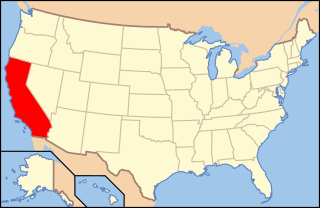
California is seen as one of the most liberal states in the U.S. in regard to lesbian,gay,bisexual,transgender,and queer (LGBTQ) rights,which have received nationwide recognition since the 1970s. Same-sex sexual activity has been legal in the state since 1976. Discrimination protections regarding sexual orientation and gender identity or expression were adopted statewide in 2003. Transgender people are also permitted to change their legal gender on official documents without any medical interventions,and mental health providers are prohibited from engaging in conversion therapy on minors.

The U.S. state of New York has generally been seen as socially liberal in regard to lesbian,gay,bisexual,and transgender (LGBTQ) rights. LGBT travel guide Queer in the World states,"The fabulosity of Gay New York is unrivaled on Earth,and queer culture seeps into every corner of its five boroughs". The advocacy movement for LGBT rights in the state has been dated as far back as 1969 during the Stonewall riots in New York City. Same-sex sexual activity between consenting adults has been legal since the New York v. Onofre case in 1980. Same-sex marriage has been legal statewide since 2011,with some cities recognizing domestic partnerships between same-sex couples since 1998. Discrimination protections in credit,housing,employment,education,and public accommodation have explicitly included sexual orientation since 2003 and gender identity or expression since 2019. Transgender people in the state legally do not have to undergo sex reassignment surgery to change their sex or gender on official documents since 2014. In addition,both conversion therapy on minors and the gay and trans panic defense have been banned since 2019. Since 2021,commercial surrogacy has been legally available within New York State. In 2024,the Constitution of New York was amended to explicitly ban discrimination on the basis of gender identity and sexual orientation.

Lesbian,gay,bisexual,transgender,and queer (LGBTQ) people in the U.S. state of Maine have the same legal rights as non-LGBTQ people. Same-sex marriage has been recognized in Maine since December 2012,following a referendum in which a majority of voters approved an initiative to legalize same-sex marriage. Discrimination on the basis of sexual orientation and gender identity is prohibited in the areas of employment,housing,credit and public accommodations. In addition,the use of conversion therapy on minors has been outlawed since 2019,and joint adoption is permitted for same-sex couples.

Lesbian,gay,bisexual,transgender,and queer (LGBTQ) people in the U.S. state of Pennsylvania enjoy most of the same rights as non-LGBTQ people. Same-sex sexual activity is legal in Pennsylvania. Same-sex couples and families headed by same-sex couples are eligible for all of the protections available to opposite-sex married couples. Pennsylvania was the final Mid-Atlantic state without same-sex marriage,indeed lacking any form of same-sex recognition law until its statutory ban was overturned on May 20,2014.
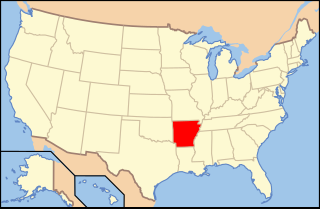
Lesbian,gay,bisexual,transgender,and queer (LGBTQ) people in the U.S. state of Arkansas face legal challenges not experienced by non-LGBTQ residents. Same-sex sexual activity in Arkansas was decriminalized in 2001 and legally codified in 2005. Same-sex marriage became briefly legal through a court ruling on May 9,2014,subject to court stays and appeals. In June 2015,the U.S. Supreme Court ruled in Obergefell v. Hodges that laws banning same-sex marriage are unconstitutional,legalizing same-sex marriage in the United States nationwide including in Arkansas. Nonetheless,discrimination on the basis of sexual orientation and gender identity was not banned in Arkansas until the Supreme Court banned it nationwide in Bostock v. Clayton County in 2020.

Lesbian,gay,bisexual,transgender,and queer (LGBTQ) rights in the U.S. state of Indiana have been shaped by both state and federal law. These evolved from harsh penalties established early in the state's history to the decriminalization of same-sex activity in 1977 and the legalization of same-sex marriage in 2014. Indiana was subject to an April 2017 federal court ruling that discrimination based on sexual orientation is tantamount to discrimination on account of "sex",as defined by the Civil Rights Act of 1964. The ruling establishes sexual orientation as a protected characteristic in the workplace,forbidding unfair discrimination,although Indiana state statutes do not include sexual orientation or gender identity among its categories of discrimination.
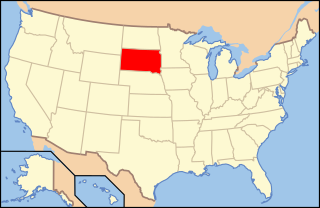
Lesbian,gay,bisexual,transgender,and queer (LGBTQ) people in the U.S. state of South Dakota may face some legal challenges not experienced by non-LGBTQ residents. Same-sex sexual activity is legal in South Dakota,and same-sex marriages have been recognized since June 2015 as a result of Obergefell v. Hodges. State statutes do not address discrimination on account of sexual orientation or gender identity;however,the U.S. Supreme Court's ruling in Bostock v. Clayton County established that employment discrimination against LGBTQ people is illegal under federal law.
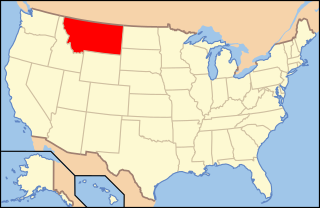
Lesbian,gay,bisexual,transgender,and queer (LGBTQ) people in the U.S. state of Montana may face some legal challenges not experienced by non-LGBTQ residents. Same-sex sexual activity has been legal in Montana since 1997. Same-sex couples and families headed by same-sex couples are eligible for all of the protections available to opposite-sex married couples,as same-sex marriage has been recognized since November 2014. State statutes do not address discrimination on the basis of sexual orientation and gender identity;however,the U.S. Supreme Court's ruling in Bostock v. Clayton County established that employment discrimination against LGBTQ people is illegal under federal law. A number of cities also provide protections in housing and public accommodations.
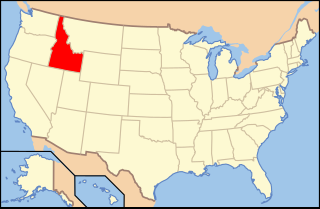
Lesbian,gay,bisexual transgender,and queer (LGBTQ) people in the U.S. state of Idaho face some legal challenges not experienced by non-LGBTQ people. Same-sex sexual activity is legal in Idaho,and same-sex marriage has been legal in the state since October 2014. State statutes do not address discrimination based on sexual orientation and gender identity;however,the U.S. Supreme Court's ruling in Bostock v. Clayton County established that employment discrimination against LGBTQ people is illegal under federal law. A number of cities and counties provide further protections,namely in housing and public accommodations. A 2019 Public Religion Research Institute opinion poll showed that 71% of Idahoans supported anti-discrimination legislation protecting LGBTQ people,and a 2016 survey by the same pollster found majority support for same-sex marriage.

Lesbian,gay,bisexual,transgender,and queer (LGBTQ) people in the U.S. state of Kansas have federal protections,but many face some legal challenges on the state level that are not experienced by non-LGBTQ residents. Same-sex sexual activity is legal in Kansas under the US Supreme Court case Lawrence v. Texas,although the state legislature has not repealed its sodomy laws that only apply to same-sex sexual acts. The state has prohibited discrimination on the basis of sexual orientation and gender identity in employment,housing and public accommodations since 2020. Proposed bills restricting preferred gender identity on legal documents,bans on transgender people in women's sports,bathroom use restrictions,among other bills were vetoed numerous times by Democratic Governor Laura Kelly since 2021. However,many of Kelly's vetoes were overridden by the Republican supermajority in the Kansas legislature and became law.

Lesbian,gay,bisexual,transgender,and queer (LGBTQ) people in the U.S. state of Oklahoma face legal challenges not experienced by non-LGBTQ residents. Same-sex sexual activity is legal in Oklahoma as a result of the U.S. Supreme Court decision in Lawrence v. Texas,although the state legislature has not repealed its sodomy laws. Both same-sex marriage and adoption by same-sex couples have been permitted since October 2014. State statutes do not prohibit discrimination based on sexual orientation or gender identity;however,the U.S. Supreme Court's ruling in Bostock v. Clayton County established that employment discrimination against LGBTQ people is illegal. This practice may still continue,as Oklahoma is an at-will employment state and it is still legal to fire an employee without requiring the employer to disclose any reason.
A bathroom bill is the common name for legislation or a statute that denies access to public toilets by gender or transgender identity. Bathroom bills affect access to sex-segregated public facilities for an individual based on a determination of their sex as defined in some specific way,such as their sex as assigned at birth,their sex as listed on their birth certificate,or the sex that corresponds to their gender identity. A bathroom bill can either be inclusive or exclusive of transgender individuals,depending on the aforementioned definition of their sex.

Multiple countries legally recognize non-binary or third gender classifications. These classifications are typically based on a person's gender identity. In some countries,such classifications may only be available to intersex people,born with sex characteristics that "do not fit the typical definitions for male or female bodies."

John Kevin Stitt is an American businessman and politician serving as the 28th governor of Oklahoma since 2019. A member of the Republican Party,he was elected in 2018,defeating Democrat and former state Attorney General Drew Edmondson with 54.3% of the vote. Stitt was reelected to a second term in 2022,defeating Superintendent of Public Instruction Joy Hofmeister,a Republican turned Democrat,with 55.4% of the vote.

The Fifty-eighth Oklahoma Legislature was a meeting of the legislative branch of the government of Oklahoma,composed of the Senate and the House of Representatives. It met in Oklahoma City,Oklahoma from January 3,2021,to January 3,2023,during the second two years of the first administration of Governor Kevin Stitt. The 2020 Oklahoma elections maintained Republican control of both the House and Senate.
Oklahoma Senate Bill 1100 is a 2022 law in the state of Oklahoma which bans sex markers other than male or female on birth certificates. According to Lambda Legal,Oklahoma is the first US state to pass such a law.

















